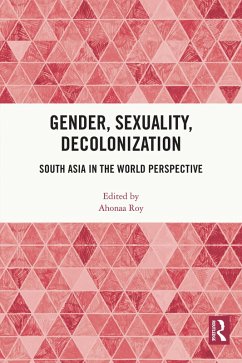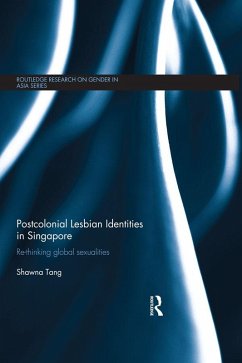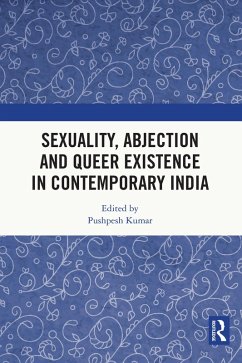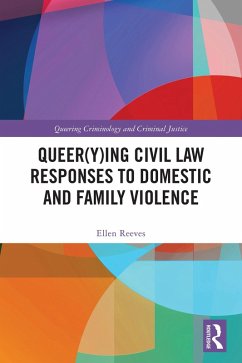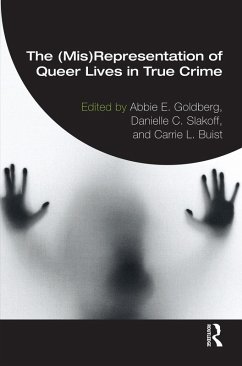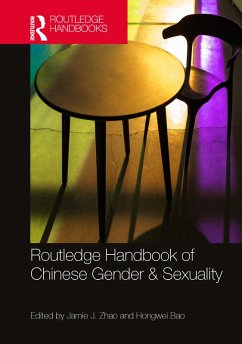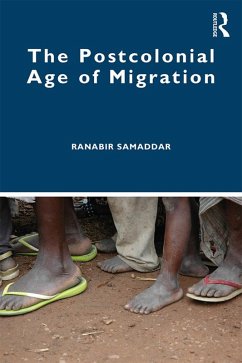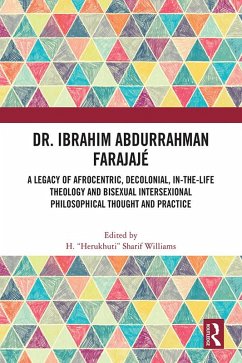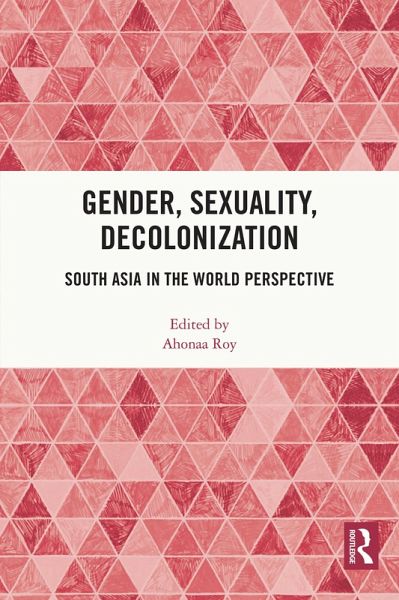
Gender, Sexuality, Decolonization (eBook, PDF)
South Asia in the World Perspective
Redaktion: Roy, Ahonaa

PAYBACK Punkte
21 °P sammeln!
This book presents a new approach to the understanding of non-normative sexuality and gender transgressive modes in South Asia and South Asian diaspora. It reconceives sexual representation from the point of view of the theoretical, political and empirical trajectories of decolonization, provincialization and neoliberalism to look at the role of historical contingency, postcolonial sexual politics and gender and sexual diversity. The volume brings together anthropological, historical, material and political analyses around South Asian sexual politics by exploring a range of themes, including c...
This book presents a new approach to the understanding of non-normative sexuality and gender transgressive modes in South Asia and South Asian diaspora. It reconceives sexual representation from the point of view of the theoretical, political and empirical trajectories of decolonization, provincialization and neoliberalism to look at the role of historical contingency, postcolonial sexual politics and gender and sexual diversity. The volume brings together anthropological, historical, material and political analyses around South Asian sexual politics by exploring a range of themes, including culture, class, ethnicity, identity, intersectionality, migration, borders, diaspora, modernity and cosmopolitanism across various local, regional and global contexts.
By using southern/non-Western and subaltern theorizations of gender and sexuality, the book discusses South Asian sexualities through issues such as the sexual politics of indeterminacy; sexual subculture, iconography and political decision-making; religious identity; queer South Asian diaspora; decolonizing the postcolonial body; sexual politics, gender and feminist debates; discrimination, and socio-political violence; the political economy of empowerment; and critical appropriation of the 377 Indian Penal Code. It also builds forms of dialogues to bridge the gap between academic and development practitioners.
With diverse case studies and a fresh theoretical framework, this book will be an essential read for scholars and researchers of South Asian studies, gender studies, sexuality studies, sociology and social anthropology, political studies, diaspora studies, postcolonial and global south studies.
By using southern/non-Western and subaltern theorizations of gender and sexuality, the book discusses South Asian sexualities through issues such as the sexual politics of indeterminacy; sexual subculture, iconography and political decision-making; religious identity; queer South Asian diaspora; decolonizing the postcolonial body; sexual politics, gender and feminist debates; discrimination, and socio-political violence; the political economy of empowerment; and critical appropriation of the 377 Indian Penal Code. It also builds forms of dialogues to bridge the gap between academic and development practitioners.
With diverse case studies and a fresh theoretical framework, this book will be an essential read for scholars and researchers of South Asian studies, gender studies, sexuality studies, sociology and social anthropology, political studies, diaspora studies, postcolonial and global south studies.
Dieser Download kann aus rechtlichen Gründen nur mit Rechnungsadresse in A, B, BG, CY, CZ, D, DK, EW, E, FIN, F, GR, HR, H, IRL, I, LT, L, LR, M, NL, PL, P, R, S, SLO, SK ausgeliefert werden.




